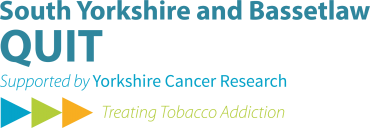- Clinical teams systematically identify smokers on admission to hospital and offer brief advice and nicotine replacement therapy (or e-cigs in Mental Health Trusts) on an opt-out basis.
- Specialist Tobacco Treatment Advisors based in the hospital will be notified of and see all smokers while they are in hospital on an opt-out basis.
- Smokers will have ongoing specialist support and medications once they leave hospital.
Treatment and support is offered to all smokers on an ‘opt-out’ basis – just like we would offer treatment for any other medical condition such as asthma or diabetes. This will enable the most people to benefit from the effective treatments and specialist support available and give us the best outcomes. This ‘opt out’ approach has been successfully implemented in maternity services for a number of years.
In Mental Health Trusts the focus is on harm reduction as well as treatment to stop smoking.
Take a look at the summary pathways below. More detail is given in the Supporting Q&As and the e-learning packages.
Acute Trusts
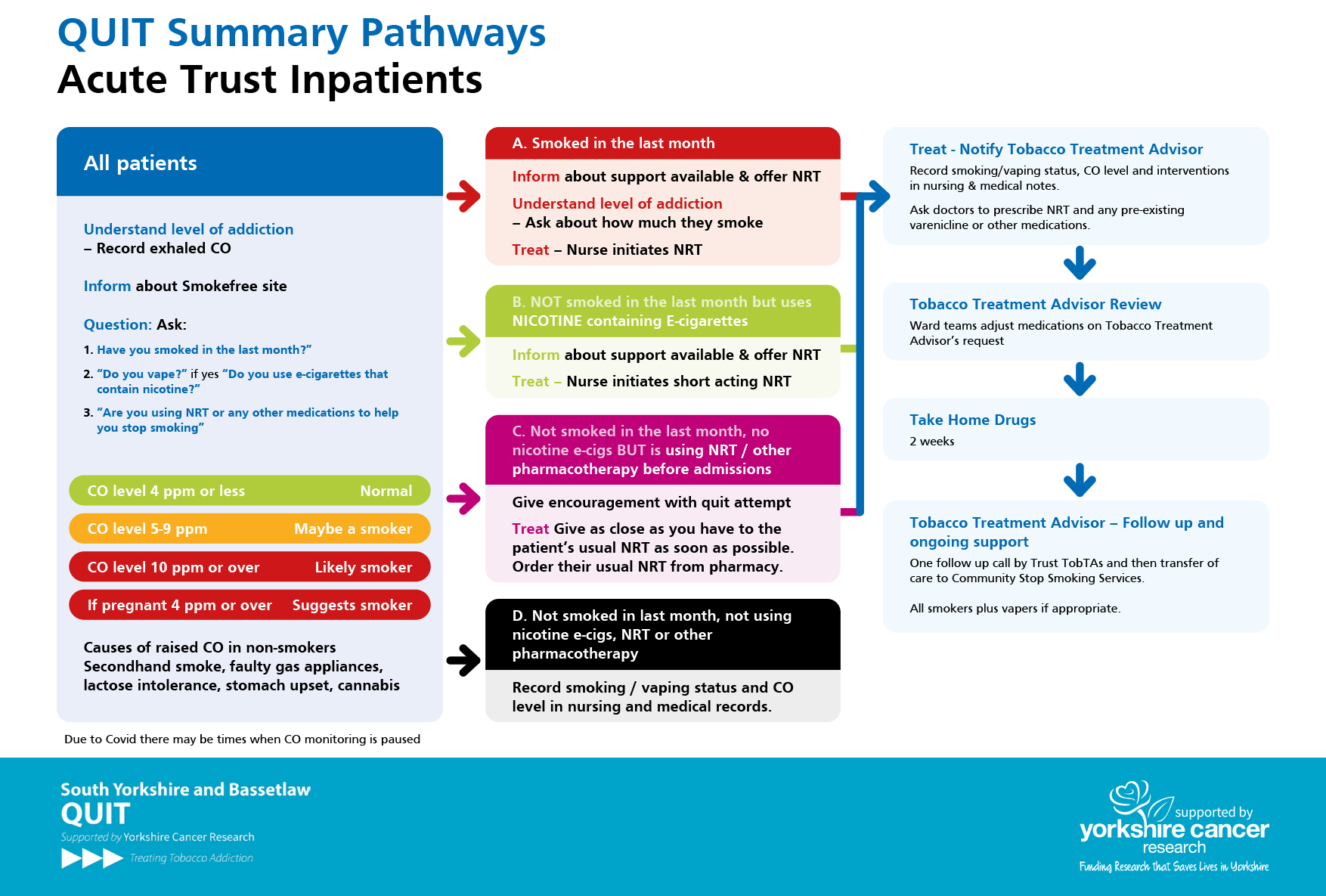
Summary of Inpatient Pathway
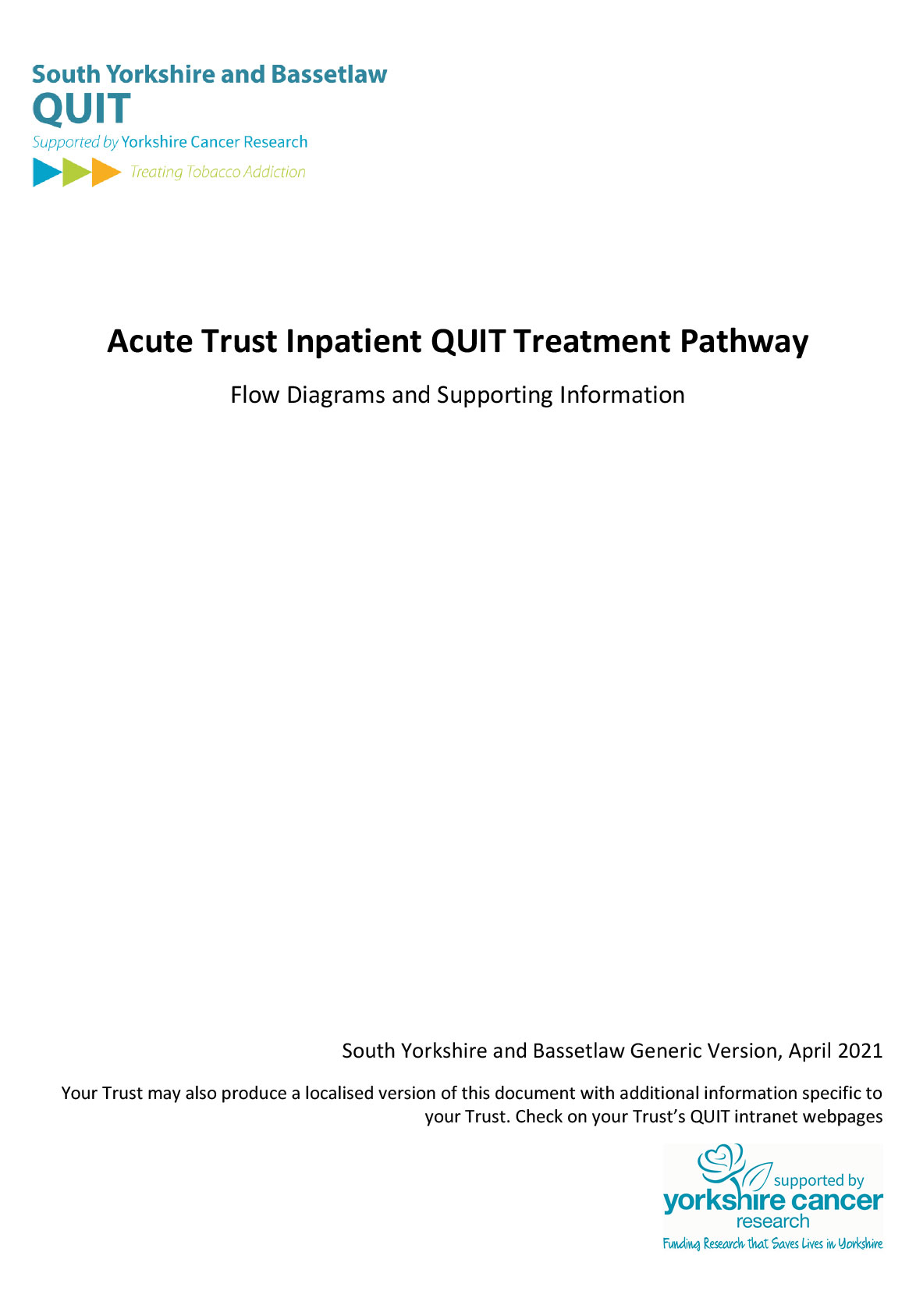
Questions and Answers
Mental Health Trusts
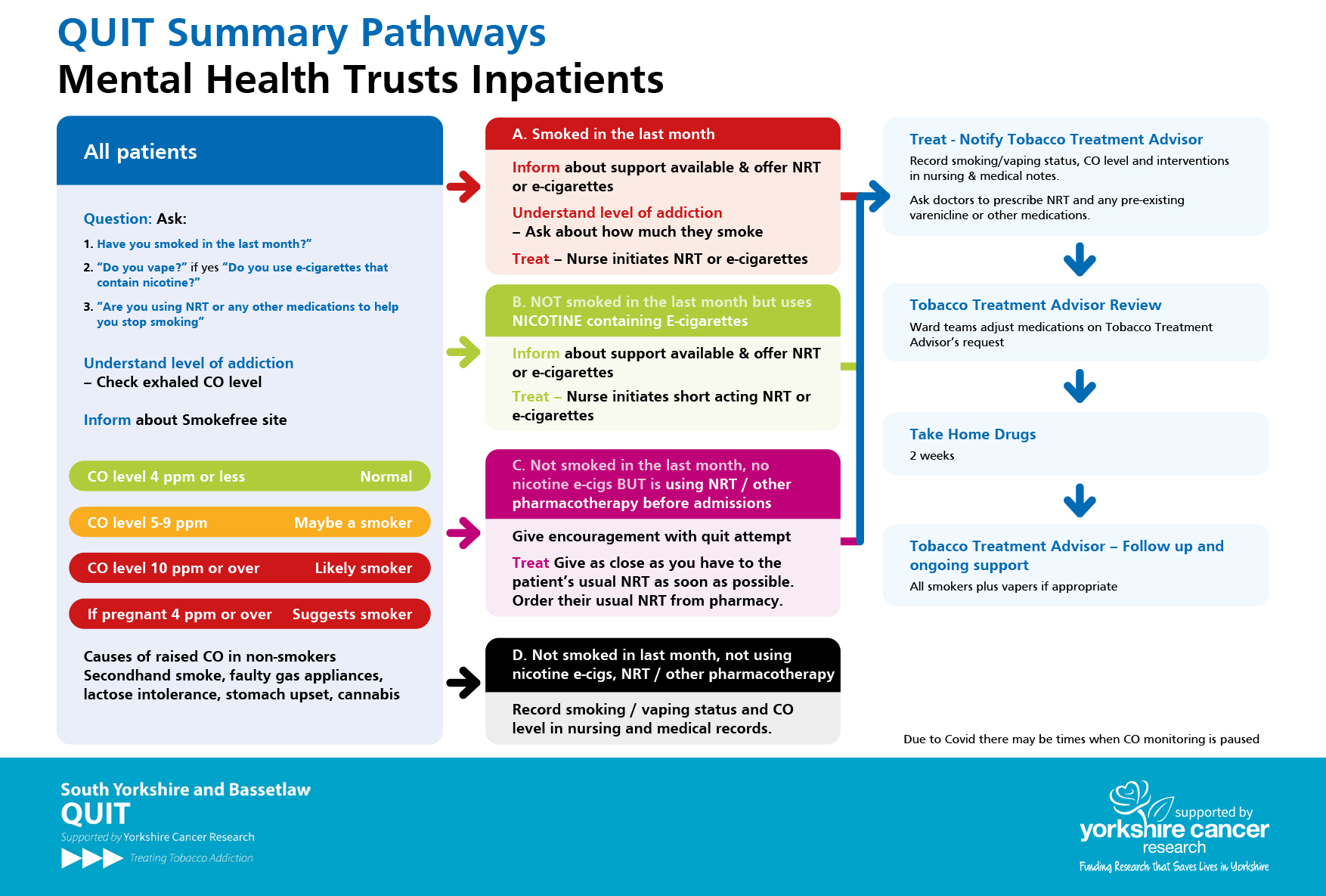
Summary Inpatient Pathway
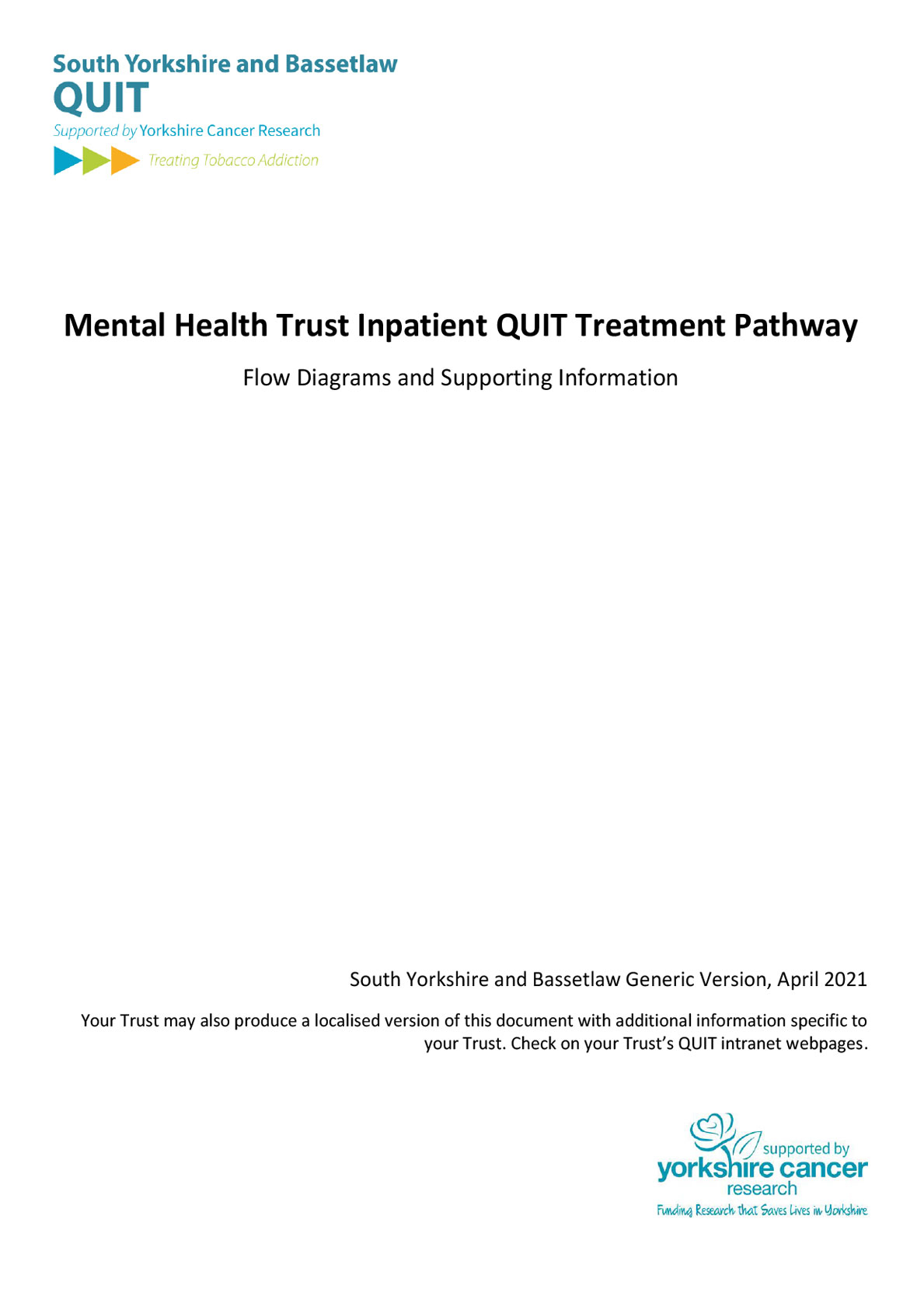
Question and Answers
Children's Hospital / Paediatric Wards
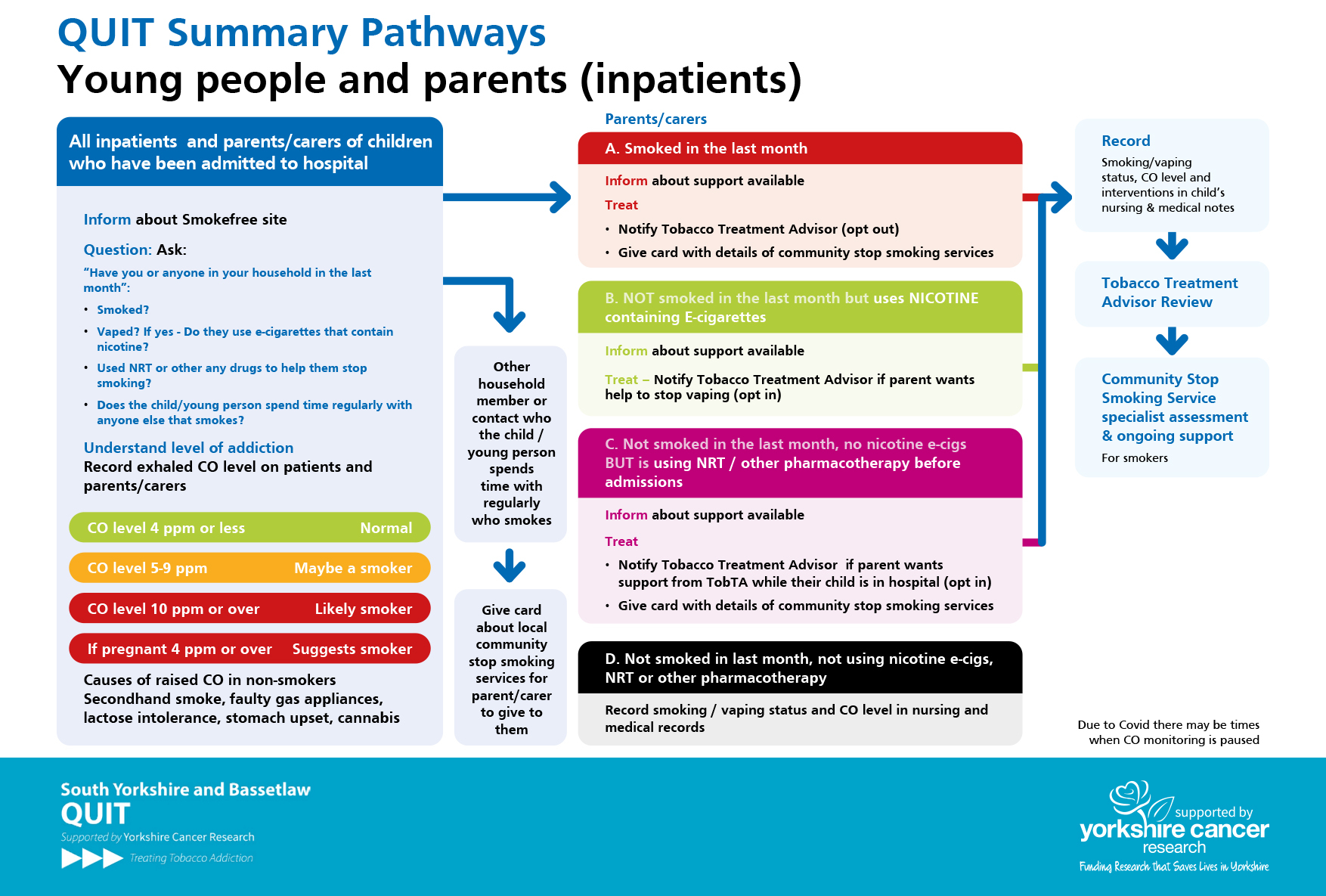
Summary Inpatient Pathway young people and their parent/carers
Questions and Answers (Coming soon)
